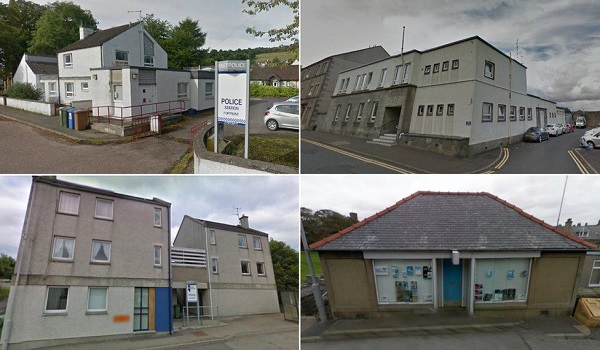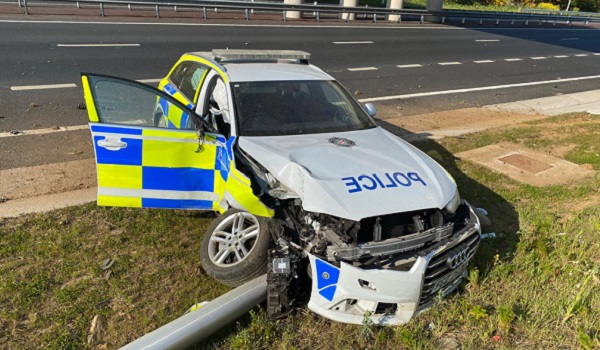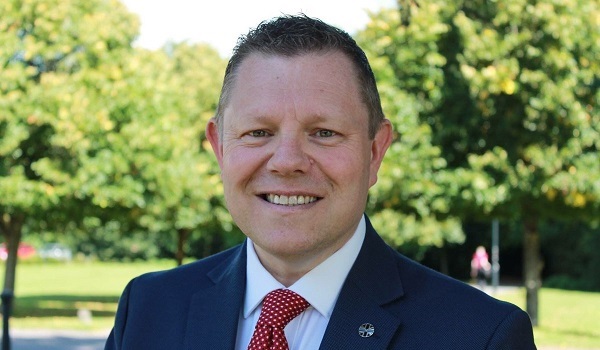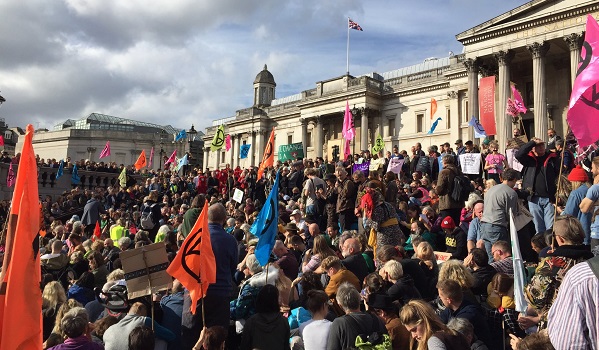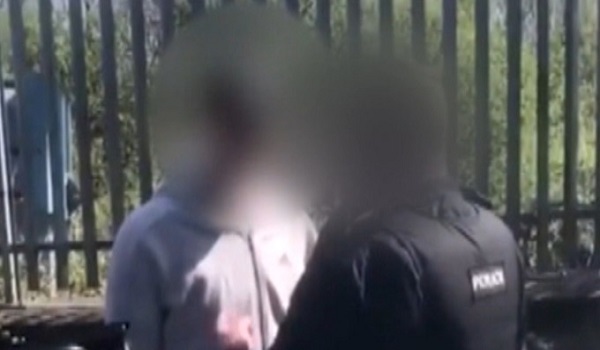Study warns of 'detrimental' impact of station closures in Scotland
People living in remote and rural areas of Scotland are less likely to contact police officers due to the “detrimental impact” of station closures, a study has found.
The research, carried out by 1919 Magazine, shows that 140 stations and offices have shut across the country since the creation of Police Scotland in 2013.
Calum Steele, general secretary of the Scottish Police Federation (SPF), highlighted that many of these closures have occurred in more remote parts of Scotland.
Staff from several stations have been relocated to shared buildings, including council headquarters – but many have been closed and not replaced in the organisation’s ten-year existence.
Mr Steele cited a lack of investment and “simple neglect” towards the police estate as an issue for remaining stations, with some ending up in disrepair.
The police chief had previously brought attention to images showing mushrooms growing on the walls of a police building in Dunoon.
Finance Secretary Kate Forbes froze Police Scotland’s capital funding in this year’s budget, resulting in a real-terms cut after inflation.
This came despite calls from the force for additional funding of £242 million over ten years to help in fixing a backlog of problems.
Mr Steele told 1919 Magazine: “Years of underinvestment in the police estate have left many police stations in a shocking state of repair. Were it not for rats, many would have no inhabitants at all.
“Whilst we welcome new buildings and co-location with other agencies where they exist, the stark reality is that simple neglect has led to so many police stations being closed and lost forever.”
He added: “I have spent the past few weeks talking to members of the public, councillors, MSPs, MPs, and our own members on this very subject.
“Without exception they consider that retrenchment into more urban centres is having a detrimental impact on the policing of remote and rural areas, with many communities now not phoning the police as they have little confidence of a meaningful response. This is a devastating assessment and officers and communities in remote and rural Scotland deserve much better.”
It emerged last year that Police Scotland had made £28.5 million after selling off 96 of its old properties.
It followed the 2017 publication of an estates strategy, which told how the organisation had “inherited a large estate”.
The report highlighted a change in demands and expectations from members of the public towards policing, including the preferred methods of contacting officers.
Using the telephone and internet were seen to be more popular than attending a station.
Last year’s revelations showed the former Strathclyde Police headquarters in Glasgow’s Pitt Street raised £9.8 million for the force while the former police training school in Chambers Street, Edinburgh, made £3.3 million.
At that point, a further 26 buildings were listed as being under offer, on the market, being prepared to go up for sale or for proposed community transfer.
Since then, three other police stations have closed, with staff being relocated to council buildings in Aberdeen, Crieff and Alloa.
Leases for 15 other police stations have also been terminated or transferred.
Police Scotland Deputy Chief Constable Will Kerr said: “Scotland’s policing estate has been built up over the course of several decades and has suffered from a historic lack of investment under legacy arrangements.
“Some buildings are no longer in the right place, are not operationally fit for purpose and not designed in a way which allows us to work alongside key delivery partners.
“We carefully consider all options regarding the use of policing buildings, including co-location or relocation and consult with a range of stakeholders and the local community.”
Jamie Greene, justice spokesman for the Scottish Conservatives, said the number of closures are a “cynical attempt to save money” by the Scottish Government – an action which he said has “undoubtedly made our streets less safe”.
Mr Greene said: “The SNP government’s police merger has meant a shocking number of local stations having to close their doors across Scotland.
“What police stations are left are often in disrepair, with reports of mould on the carpets and buildings that are no longer wind or watertight. When Police Scotland tried to get the funding to make improvements, the SNP government handed them a real-terms cut to their capital budget instead.
“This pattern of neglect cannot continue. Our police need to have access to more, and higher quality, local stations.”
Scottish Liberal Democrat justice spokesperson Liam McArthur said: “The SNP’s centralisation of Scottish policing was billed as a cost saving exercise.
“When those savings failed to appear it was estates and staff which bore the brunt of the cuts. Having police based across the country is essential for community policing and the closure of so many stations risks hollowing out the ability to make this model work effectively.”
The Scottish government said recorded crime is at one of the lowest levels since 1974 and is down 41 per cent compared to the data for 2006/07.
A spokesman for the Scottish government said: “The allocation of resources, including for the police estate, is for the Scottish Police Authority and the chief constable to determine.
“However, the police capital budget has more than doubled since 2017/18, supporting continued investment in the police estate. Police Scotland has prioritised the progress of a new and ambitious estates strategy which will lead to improvements in the operating environment for all officers and staff in line with the objective to proactively look after their wellbeing.”


